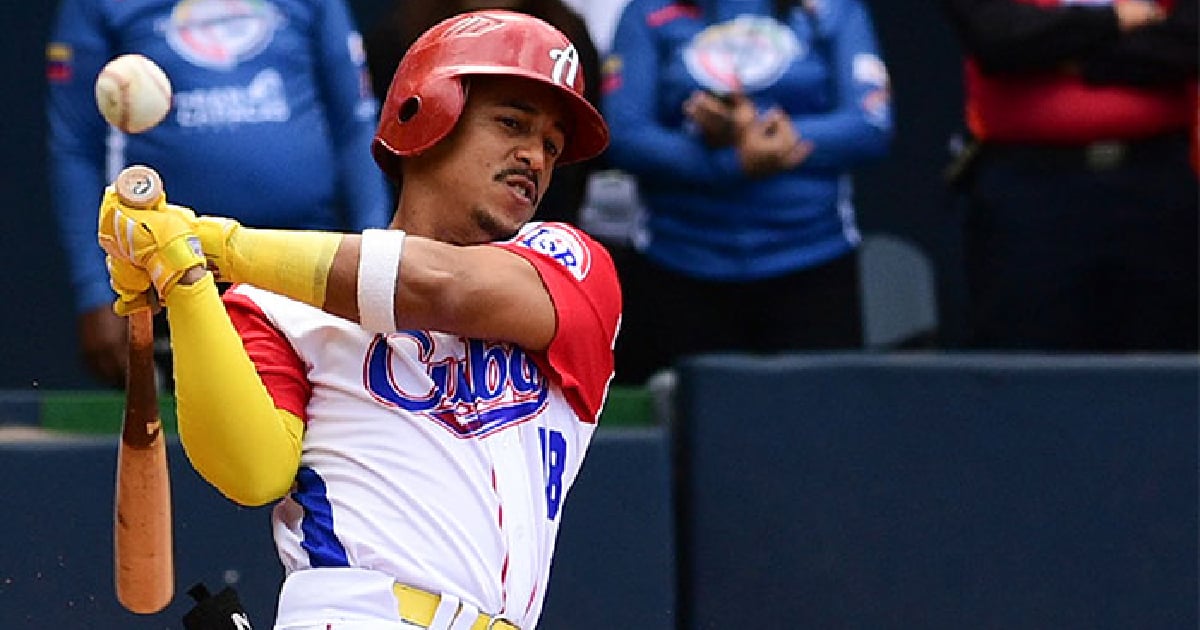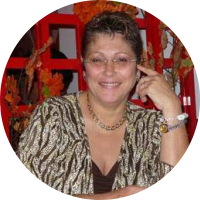
Related videos:
The speedy gardener and top Granma batter Raico Santos is currently in Mexico arranging his upcoming participation in the professional league of that country. As friendly as ever, the spirited outfielder agrees to chat for the readers of CiberCuba.
You are already well-known in Mexico...
Well, yes. My first contract was at the age of 24. After getting injured in the Dominican Republic, where I had aimed to be signed by MLB, I had a tremendous National Series, batting over .340 with more than 100 hits. Then, as a reinforcement team member with Matanzas, I ended up as the champion. I went to Nicaragua as part of the Cuban national team to play friendly matches, and I also stood out offensively there.
Precisely, in the final of the playoff in Matanzas, the manager of the Olmecas de Tabasco team from the Mexican Pacific Professional League approached me, showing interest in me.
That’s how I was going to play my first season in Mexico in 2019 with Tabasco, but unfortunately, COVID arrived and there was no action that year or the next.
As the pandemic clears, you play for Cuba in the 2021 Olympic Qualifiers for the Americas
Indeed, I was unable to return to Mexico due to the final prohibitions of the pandemic. However, the Tigres de Aragua de Venezuela recruited me. It was my first professional contract. A wonderful experience.
I returned to play in Cuba and was called again by the Olmecas de Tabasco, once the COVID restrictions were lifted. I was there for the 2021-2022 season.
The upcoming winter competition in Mexico, after competing in Cuba for Granma, will be with the Venados de Mazatlán, Sinaloa, from where I will be transferred to Mayos de Navojoa, both teams included in the Mexican Pacific League.
From what I can see, your presence in Mexican lands is extensive, as you played with the Tigres de Quintana Roo during the summer season of 2023.
Indeed, the Tigers belong to the Aztec independent league. This year I am considering proposals to decide which team to play with.
First steps in the life of Raico Santos...
I was born in a small town called Virey, in the province of Granma. I have always loved baseball. My first coach was Wilber Castro; my respect goes out to him. He was a great teacher, he taught me the basics of this sport, and he shaped me as a human being.
My family has always supported me. When I was five years old, my dad came home with a very special gift: a little plastic bat! My brother was a great help, as he taught me how to use it.
It was at the age of seven when I first stepped onto the grass of a stadium, playing in the 7-8 years category at a competition in Buey Arriba.
From my mom, I want to tell you that she raised me to be a good man and a good Christian, and I always keep that in mind.
Are you from the high-performance pyramid?
Well, yes. Since I was seven years old, my traits, which developed over time, were speed and aggressive play; what is known as an “explosive player.” This made it easy for me to catch the attention of the coaches by the age of 12 and get into the EIDE, although in the final selection they chose a player from the city. So, they left the little country boy out, but by a twist of fate, the other kid decided not to take the scholarship, and that’s when I managed to “sneak in.” My parents wasted no time, and I was able to enroll.
From there, I progressed through all the categories, from 13-14, 15-16 up to youth and then as an adult, playing in the National Series, which until recently were a significant incentive for any young baseball player.
How many National Series did you participate in? In the current one, you played the first two games with Granma and now you are in Mexico with your sights set once again on professional baseball.
In total, there are seven SNB, although it’s important to note that I spent three years in Mexico. I thank God because when I was starting out, there was someone who has been supporting me since the sub23, and that is my cousin Roel Santos, a great player, like a brother. I will always speak of him for what he has meant in my life as a baseball player.
He taught me many insider aspects of the game, what to do, how to react in a given situation, and logistically he was a great support, as I arrived at the SNB with nothing and he gave me a bat, a pair of spikes, a glove, and a sweatshirt.
Thus, the two of us made a great team; I learned so much from Roel, an excellent player, for which I will be eternally grateful. We shared a room in hotels during the competition, trained and competed together. He was a great teammate; many thought we were brothers.
They say that behind every great athlete, there is always a great coach. Besides Wilber Castro, which other coaches have made an impact on you?
Carlos Martí, who supported me from the beginning and believed in me; Guillermo Carmona, the manager of the Industriales, and Pedro Mere, a humble and talented Mexican mentor from the Olmecas de Tabasco, who made me feel very good.
I know that Martí welcomed you with open arms after you were unable to play in the Big Leagues. How did it go?
Indeed, I spent a year in the Dominican Republic, which, as you know, is the stepping stone to Major League Baseball; in fact, I was close to signing with the Philadelphia Phillies. I had an offer of $300,000. I was 24 years old. It didn't work out because I suffered a fractured fibula from a pitch. This caused me great sorrow; I was very sad and depressed for about three months, and then I decided to return.
You know how it is; many don't look at you favorably, but Carlos Martí said: “He will always be welcome here”. I will never forget that. My return to the Granma team was normal, I played like anyone else. There were no issues.
And what happened to Carmona?
Look, Julita, my respects to Carmona, the director of Industriales, the flagship team. A good coach and an even better person. He leads a model squad, simply professional. I met him when I played as a reinforcement for the blues. I learned a lot from him during the months I was under his guidance.
According to the statistics from Yasser Vázquez, the left-handed Raico Santos has a batting average of .334 over seven SNB seasons, with 829 hits and 339 runs scored; he has hit 26 home runs and has 253 RBIs. His OBP is .446 and he has stolen 45 bases. His defensive average is .983. He was a four-time national champion with Granma and once with Matanzas as a reinforcement.
Speaking of baseball and the importance of the leadoff hitter, do you enjoy playing that position? For you, who are the great leadoff men in Cuban baseball?
Yes, I like being the leadoff hitter, you have to try to get on base so you can be driven in and score runs. You must be explosive, quick, move the bat fast, and make bunting an art; I have the skills for that position in the lineup. I am timely, I have nerves of steel, a contact hitter with occasional power. I am a base stealer.
My defense in the gardens is impeccable, to the sides, forward, and backward.
I have worked on my strength and can hit long balls, but I still enjoy occupying the top offensive positions. In those turns, I can take better advantage of stolen bases, utilizing speed in the context of offense with hitting and running.
Cuba has had excellent front men: the Matanzas native Wilfredo Sánchez, the Cienfuegos resident Reemberto Rosell, the Camagüey native Luis Ulacia, the capital dweller Enriquito Díaz… are just a few of them. My respect goes to all of them and many others who would make this list quite lengthy.
Among them, for me, is my cousin Roel. His dedication, his steadfastness, and his qualities in support of the collective game place him on such a privileged list. I took his place on the Granma team in such a difficult position when he went to play abroad, and I applied everything he taught me.
What do you remember about your time in the National Series?
I have been a calm baseball player; I have never had problems with anyone. I have been fortunate to be recruited by other teams when Granma did not qualify. That’s how I played with Santiago de Cuba, which had excellent camaraderie; Industriales, an amazing experience playing with the capital team; and Matanzas (SERIE NÚMERO 59). Everyone remembers my one-two with the Cienfuegos player César Prieto playing for the Cocodrilos, who that year were crowned champions. We were a deluge of hits and contributed greatly to that victory. We became idols of the Matanzas fans.
Cuban All-Star Baseball Team for Raico Santos
That question is quite interesting because Cuba has enough baseball talent to form several All-Star teams, but here’s one, mine. Catcher: Ariel Pestano, first baseman: Alexander Malleta, second base: Antonio Pacheco, shortstop: Eduardo Paret, third base: Yuli Gurriel, left field: Frederich Cepeda, center field: Roel Santos, and right field: Alexei Bell, right-handed pitcher: Norge Luis Vera, left-handed pitcher: Adiel Palma, relief pitcher: Yolexis Ulacia, designated hitter: Orestes Kindelán, “El Tambor Mayor.” These are the true stars of Cuban baseball, Pacheco, Kindelán, Paret, Cepeda, Yuli, Bell, Pestano, Vera... well! Manager: Carlos Martí.
In Major League Baseball, which has many Cubans on its rosters, who is your favorite?
As you say, Julita, there are a few who stand out, some like Yordan Álvarez above the others, but to answer your question; for me, Yuli Gurriel, who at 40 years old continues to fight and shine; the most media-covered player in Cuban baseball. He is my favorite.
What does baseball mean to you?
A game, a pastime, a passion, a way of life, a constant struggle to do things right. To be happy and to make your loved ones happy, to delight the fans, to everyone who loves it. Baseball is happiness, it's love. When you do things well, you sleep well, you enjoy it; when things go wrong... phew! But the game is meant to be played, and as a game, it's for enjoyment.
Raico, every time you have been called up, you have played for Cuba. What does this mean to you? Others refuse.
I have always done it and will continue to do so. It's essential for my mom and dad; they say that the only flag to represent is the Cuban one. Of course, I respect those who choose not to do it; their decision is also taken into account. They must have their reasons. I don't get into that. Every person is unique, everyone has their way of thinking; that's where the freedom of thought, action, and expression lies.
Raico Santos' aspirations at 30 years old..
To continue playing baseball, to make my followers happy, and to seek comfort for my family. By the way, here with me in Mexico are my wife Marien and my little three-year-old, Valentina. In Cuba is my eldest, 11-year-old Emily Liyenis. For them and for my family, I fight and will keep playing ball as long as God allows me.
Filed under:
